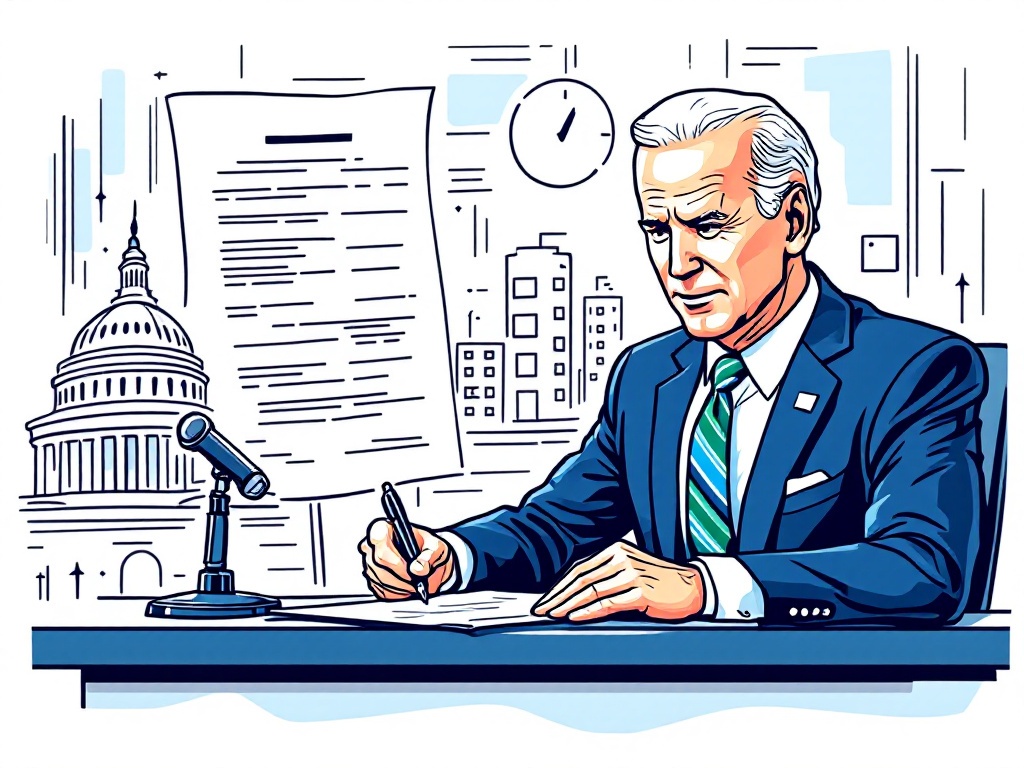Biden Executive Order Promotes AI Despite Energy Concerns

Washington, D.C., Thursday, 16 January 2025.
President Biden’s January 2025 order boosts AI infrastructure while addressing the energy demands of data centers, which may consume up to 12% of U.S. electricity by 2028.
Balancing Innovation and Environmental Impact
In a significant move just days before leaving office, President Joe Biden signed an executive order on January 14, 2025, aimed at bolstering America’s AI infrastructure [1][2]. This directive comes amid growing concerns from the Department of Energy about data centers’ escalating energy consumption, which has more than doubled from 2017 to 2023 [1]. Currently, data centers consume 176 terawatt-hours annually, representing 4.4% of total U.S. electricity use [1], and this figure is projected to surge to between 325 and 580 terawatt-hours by 2028 [1][2].
Clean Energy Mandates and Infrastructure Development
The executive order requires federal agencies to expedite the creation of large-scale AI infrastructure while mandating the use of clean energy sources such as geothermal, solar, and wind power [2][7]. Under the directive, the Departments of Defense and Energy must identify at least three sites for private sector AI data centers by February 28, 2025 [7]. Developers will be required to fund construction costs and ensure sufficient clean power generation, aiming to prevent increased electricity costs for consumers [2].
Environmental Challenges and Resource Consumption
The environmental impact extends beyond electricity consumption. Data centers’ indirect water usage has increased dramatically, from 5.6 billion gallons in 2014 to over 211 billion gallons in 2023 - equivalent to the annual water consumption of 1.76 million U.S. households [1]. Despite these concerns, the executive order has received criticism for lacking specific provisions to address water usage [2], with experts across the country scrambling to assess the full impact of data centers on water resources [2].
Political Uncertainty and Future Implementation
The future of this initiative faces uncertainty as President-elect Donald Trump prepares to take office on January 20, 2025 [1]. Trump’s strong ties to the fossil fuel industry and previous campaign contributions exceeding $32 million from the oil and gas sector [1] raise questions about the continuity of Biden’s clean energy requirements for AI infrastructure. Deputy National Security Adviser Anne Neuberger has notably indicated that the White House did not discuss the order with Trump’s transition staff [4], potentially complicating its implementation moving forward.
Sources
- www.levernews.com
- apnews.com
- www.pbs.org
- www.wired.com
- cyberscoop.com
- www.foxbusiness.com
- www.dentons.com